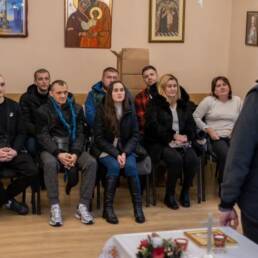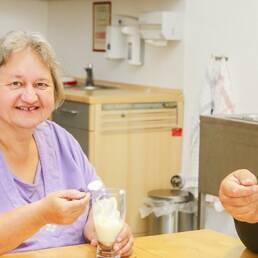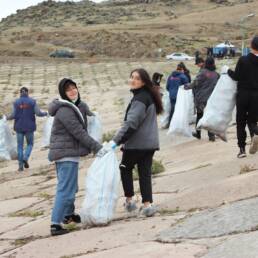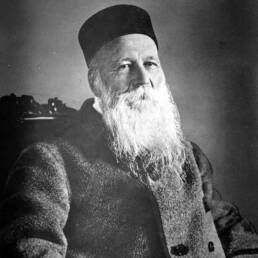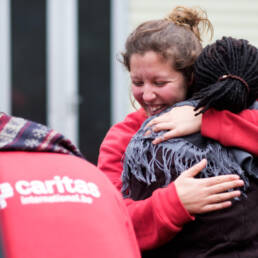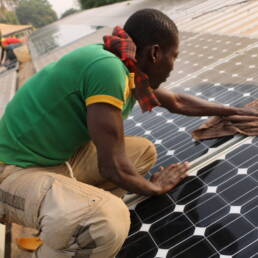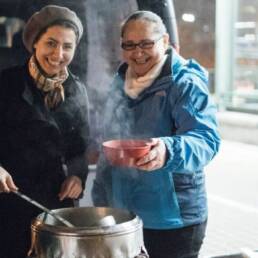Author
Maria Krabbe Hammershøy
Secretary General
Caritas Denmark
As the year draws to a close, households and families all over Europe find themselves affected by the increased prices of oil, gas, and electricity.
In the long run, we can only hope that the present energy crisis will be an accelerator for change and pave the way for a greener and more sustainable future, as described in Pope Francis’ encyclical Laudato Si’. However, this does not diminish the very real challenges individuals across the continent are facing now.
Even in a rich country such as Denmark we hear on the news about families with small children who must choose between paying for food, rent, or energy. What is truly touching in this situation is that the rising cost of living does not seem to have had a negative impact on people’s willingness to give. At least this is our experience in Caritas Denmark.
This Advent season, we have been overwhelmed by donations to help vulnerable families through the winter in Ukraine, where temperatures can reach thirty degrees below zero. In Ukraine, of course, the energy crisis is of a very different nature due to the continuing Russian missile attacks: A large part of the population has simply been cut off from primary energy sources and has no heat, which has resulted in a humanitarian catastrophe that has only been aggravated by the fact that many private homes have been partially or completely destroyed.
Earlier this year, in March, when I drove along the Ukrainian border to visit our Caritas partners in Hungary and Slovakia, I was overwhelmed by the large convoys of cars leaving the war-torn country. People were in such a rush to get out. You could feel the desperation. It was heart-breaking to witness families being separated at the border. It was like nothing I had ever seen before.
At the same time, I was deeply touched by the refugees’ resilience and the spirit of compassion with which our local colleagues received them. Everybody did their share: humanitarian workers, priests, nuns, and seminarians. Once again, I was reminded of the fact that Caritas means love.
Or, as our colleagues in Jordan say, “Caritas is not a job, it is a mission.”
At Caritas Denmark, we too have been happy to welcome refugee families from Ukraine. We have, among other things, hosted a career fair and organised language courses to facilitate access to the Danish labour market, and in our migrant centre that opened only a few weeks ago Ukrainian and Russian speaking therapists and legal advisers lend an ear and offer guidance.
A good deal of our volunteers are Ukrainian refugees who themselves know first-hand what it is like to have to leave your country behind and who are grateful for the help they have received along the way. Now, they want to pass on the favour. This is not uncommon. Recently, I attended a Caritas Internationalis conference in Rome, where I met with Tetiana Stawnychy, the President of Caritas Ukraine, whom I have encountered quite a few times since the outbreak of the war. What she told me confirmed my own experience: Many of Caritas Ukraine’s beneficiaries later sign up as volunteers.
“What we see is a beautiful solidarity of people helping one another,” Tetiana informed me. “In a way we will be living what Christmas is really about: helping those who need it and giving shelter to those who have no place to stay.”
I could not have put it better myself.


